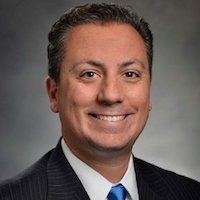Leveling Up: How to Build Financial Planning Skills
Many people around the world find it difficult to save money and plan for their financial futures; the United States is no exception. By one estimate, one-third of Americans have nothing saved for retirement, and 78 percent live paycheck-to-paycheck to make ends meet.
There are several reasons why this is the case, as people in the U.S. face relatively high debt from credit cards, student loans, and medical bills; a high cost of living; and salaries that don’t seem to keep up with the economy, which, by all accounts, seems to be humming right along. In an uncertain, sometimes scary world, it’s often easier to focus on current needs and wants versus putting limited dollars aside for unknown needs and wants to be used decades from now.
Some analysts point the finger at parents for not doing a better of teaching and leading by example: Gen Xers may also face high debt, difficulty making ends meet, and unstable employment, so it’s not hard to share these insecurities with their children. Others blame schools for teaching everything but basic finances.
While Americans of all ages seem to be lagging in their financial know-how, Millennials are of particular concern. By illustration, a 2017 survey from the National Endowment for Financial Education indicated that this demographic collectively has poor financial health but an unusually high belief in their own financial abilities. The survey showed that 69 percent gave high self-assessments of their financial knowledge, but only 24 percent actually had basic financial literacy. Just eight percent indicated a validly high level of financial knowledge. Furthermore, many Millennials own actual assets (e.g., homes, cars, 401Ks), but they also have high debt loads and not much of a cushion for disasters.
Some analysts forecast a bleak future in a couple of generations, whether this means more bankruptcies, expanded entitlement programs and public safety nets, or that we all have to work until our 80s or 90s, making “retirement years” an antiquated term. If you’re in this low financial literacy group, you can wait and see what happens, or you can do something about it.
There are plenty of opportunities to boost one’s financial skills and make sense of all the numbers and terminology. This knowledge can pay dividends in future financial security and even career prospects. Even better, managing your personal finances could mean more money to spend on yourself and your family, now and in the future.
Continue reading for suggestions for how to improve your own abilities with money by learning more about financial planning, either in traditional university settings or other independent study programs.
Fast Facts: Why Are Financial Planning Skills Important?
- Less stress. Various surveys indicate that even people with high income may not be prepared if they need money fast. Within households making more than $100,000 annually, 38 percent would find it difficult to raise $1,000 in a hurry. Knowing that you have a cushion for health emergencies, legal expenses, home repairs, or anything unexpected can be reassuring, and eliminate some feelings of vulnerability and uncertainty from a habit of living paycheck-to-paycheck.
- More money available to you. You can start by paying larger amounts on credit cards than minimum monthly payments, which will start to improve your credit rating, allowing you to borrow at lower interest rates or shorter terms for future loans, and pay these off sooner.
- Interest that works for you, not against you. Interest on money market accounts, CDs, bonds, and other investments can provide you with more money, rather than paying someone else’s interest. You may not be able to access all your funds instantly, but the extra interest over extended periods of time can help everything grow larger, and will amount to a nice nest egg upon retirement.
- Future occupations. Gaining an understanding of finances can qualify you for jobs with great career prospects and room for advancement. One easy transition could be helping explain some of these strategies and products to your peers to help them manage their money better. The U.S. Bureau of Labor Statistics (BLS Oct. 2017) predicted that openings for personal financial advisors are expected to swell 14 percent between 2016 and 2026, double the projected average growth of all occupations during that time. And these advisors make an average annual wage of $90,530, which has the potential to eliminate even more financial uncertainties. There are more investment products and ways to customize portfolios than there were a generation ago, so demand is supposed to rise even more for people to help make sense of them all.

Three Gurus of Financial Planning & Investments to Know

Kurt Carrasquilla teaches investment strategies at University of California–Berkeley’s Financial Planning Program and wealth management at Stanford University. He is a vice president and Financial Advisor at a major bank, and has earned the title of Senior Investment Management Consultant—an elite award given to those with high knowledge of asset management. He’s also received a variety of industry awards for his educational efforts.

Linda Barlow is co-owner of Barlow & Parker Wealth Managers, and is an investment advisor as well as a fee-only financial advisor. She teaches at California State University–Fullerton and the University of California–Irvine. Her firm provides planning and management services for individuals and pension plans. Notably, Bloomberg listed Barlow as a “Top Wealth Manager.”

Thomas J. Canale is a Wealth Management Advisor with Northwestern Mutual’s Wealth Management Company, which offers a variety of advisory services for businesses and individuals. One of his foci is helping families who have individuals with special needs create financial security. He’s always eager to identify other talented representatives to join the company and is part of several civic and educational advisory councils, including Northwestern and Marquette Universities.
Financial Planning College Programs
Here is a featured selection of academic programs for aspiring experts in financial planning and investments.
This 18-credit certificate in personal financial planning program is available in person and online. It provides an overview of the various investment products available, as well as basic business and financial terminology. The program is overseen by an advisory board of working professionals eager to share their insights. Students who complete the school’s certificate program are eligible to take the national Certified Financial Planner (CFP) Certification Examination, which can enable them to start legally offering investment products to clients.
- Courses: Behavioral Finance, Estate Planning, Insurance, Income Taxes, Retirement Income Planning
- Cost: $750 per credit for concurrent enrollment (university admission not required)
Students in the 18-credit undergraduate certificate in financial planning learn about planning concepts, investment strategies, and financial products. The online coursework provides the required background to take the CFP Certification Exam or continue studying for a bachelor’s degree. The program faculty includes area attorneys, professionals with licenses in insurances and securities, and many with CFA and CPA credentials. Completing the program can be useful for those interested in working at an investment brokerage, as well as in banking, law, or insurance.
- Courses: Principles of Taxation, Retirement Planning, Portfolio Analysis
- Cost: $555 per credit if less than 12 per semester; $596 per credit if more than 12 per semester
UCI Division of Continuing Education
The personal financial planning program at University of California–Irvine provides an overview of the modern financial industry. Students who complete the classroom and online course are eligible to sit for the CFP exam. Current students or financial professionals wanting to improve their skills or career prospects also are encouraged to take this program, as it can provide continuing education units (CEUs) to maintain credentialing. The eight-course certificate includes 315 hours of instruction which must be completed within five years. There is also an accelerated program that can be completed over nine weeks if a student meets certain professional qualifications. Students can apply their credits toward the MBA program at California Lutheran.
- Courses: Retirement Planning, Income Tax Planning, Estate Planning, Investment Planning
- Cost: $690-$720 per course
Northwestern School of Professional Studies
Whether someone is interested in a new career or a financial professional eager to advance, this certified planner program can offer a good overview of the duties of the modern planner, and prepare students to sit for the CFP board. Students can visit the Chicago campus once a week on weeknights for 14 months, which can be useful for working professionals. Alternatively, they can take online courses in a “live” or self-paced format over nine months. A professional development certificate is also available.
- Courses: Financial Plan Development and Presentation, Estate Planning, Income Tax Planning, Insurance Planning
- Costs: $6,465 for the entire on-campus program; $5,650 to $7,795 for online “live” program, depending on courses; $3,195 to $4,795 for online self-paced, depending on courses
Boston University’s Center for Professional Education
Students can earn a financial planning certificate from Boston University on campus or online. The program offers a variety of courses discussing current methods and products, preparing students for the CFP exam. It is designed to offer flexible scheduling and structured guidance under faculty members from the professional financial community. The seven required courses also include a capstone project, where students are required to create their own financial plan development course. Professionals can also receive CEUs.
- Courses: Risk Management, Estate Planning, Tax Planning, Retirement Planning and Employee Benefits
- Cost: $945 per credit
DIY Financial Planning Training
In addition to the formal educational opportunities listed above, people seeking financial management and planning knowledge can find useful low- or no-cost resources online.
The online resource for financial planning and investing has a detailed free section geared to teaching everyone at every level, including complete novices. The five modules start with a general overview, followed by discussing compounding of money. Students learn about how technology has changed investing and are encouraged to look inside to see if they’re the kind of person who would enjoy a related career. There’s an emphasis on coming up with strategies to minimize risk and make money over time, as money management isn’t just for those who are already rich. The site also works with a group of fund advisors, who have agreed to take questions from people just getting started.
The ‘Dummies’ series of yellow books are familiar to anyone who wants to learn a task or topic from the ground up. The book format slowly and comprehensively gives readers the details of all sorts of subjects, from computer programs to car repair. The online versions of these books include ‘Cheat Sheets,’ such as the investing guide, which provides basic tips to get started and various links to other “how-to” resources. While these may not necessarily help a person ace the CFP exam, they can provide some solid, general guidance for personal financial habits like spending less, negotiating better with service providers, and finding ways to bring in more money. This sheet stresses the value of research in decision and the risk of investment decisions based on emotion.
Coursera: Financial Planning for Young Adults
Investing doesn’t have to be something that only grown-ups do: in fact, the earlier a person gets started learning good habits of financial literacy, the better. Though young people may not have a lot of cash flow, they also won’t have some of the larger burdens of grown-ups, such as mortgages or car loans. In this course, students focus on the importance of saving, seeing how interest works, mitigating financial risks, and finding ways to create a routine for dividing any revenue into current and future needs. This program, which is offered through the University of Illinois–Champaign, provides five graded units with eight online modules taught by financial professionals. Topics include better budgeting, goal-setting, and credit, plus information about career options in financial planning for later in life. It takes about a month to complete the course, with about three or four hours per week of work required. Completion of the program yields an electronic certificate, which can be used on various social media profiles. Coursera classes vary in price from free to $99.
Coursera: Personal and Family Financial Planning
This online course taught through the University of Florida is designed to help individuals and families make better financial decisions and budget their money better. The nine-week program gives strategies on creating personal budgeting plans together, plus general overviews of investment opportunities such as mutual funds and budgeting tools. Similar to the above, Coursera classes vary in price from free to $99.
MOOC, short for Massive Open Online Courses, compiles lists of online free or low-cost courses taught through various colleges and other providers. Its budget and financing options include programs through Coursera, edX, FutureLearn, NovoEd, ApnaCourse, and other similar providers.
Udemy: Introduction to Financial Planning
Finally, this free online course covers five sections of modern financial planning, including various products, the regulatory environment, and the CFP code of ethics. The program consists of roughly 14 hours of video lectures from various professionals. The price-per-unit is typically $30, but sometimes the introductory course is reduced in price. Students also get a certificate of completion with each unit.


